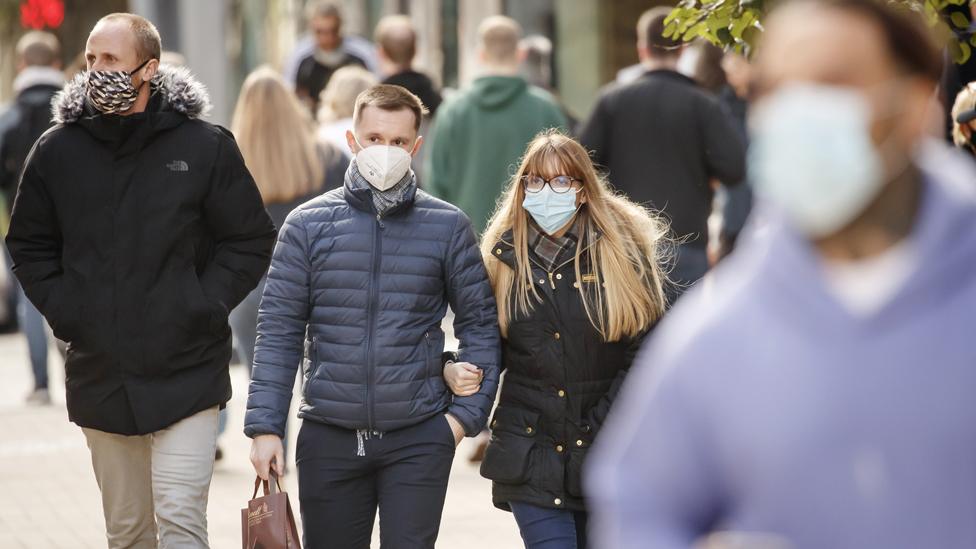Coronavirus: Nisra records another 100 deaths
- Published

The number of Covid-19 related deaths registered in Northern Ireland has risen for the seventh week in a row.
According to government statistics agency Nisra, 100 deaths were registered in the week to Friday 20 November.
That is four more than the previous week, and takes Nisra's overall total to 1,301.
It includes the deaths of 69 people in hospital - the largest weekly hospital death toll recorded since March.
On Friday 12 further deaths linked to Covid-19 in Northern Ireland were reported by the Department of Health, bringing its total to 974.
The department also recorded 391 new cases of coronavirus.
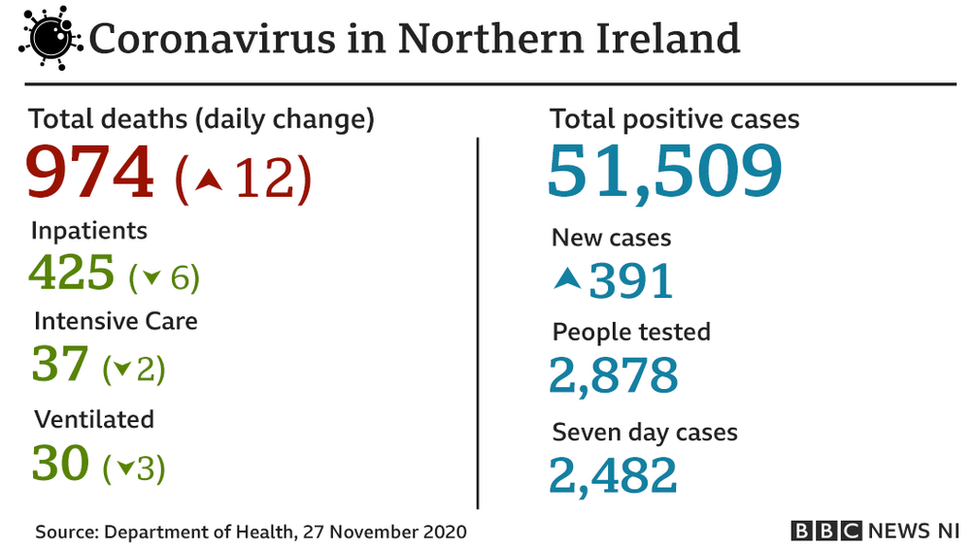
The Department of Health record separate figures based on the number of daily positive test results recorded.
Nisra's figures are based on mentions of the virus on death certificates.
On that measure, NISRA has recorded 789 (59.2%) deaths in hospital, including the deaths of 113 people normally resident in care homes.
Taking that and 447 who died in care homes, care home residents account for just over two-fifths of all Covid-19 related deaths in Northern Ireland (42.0%).
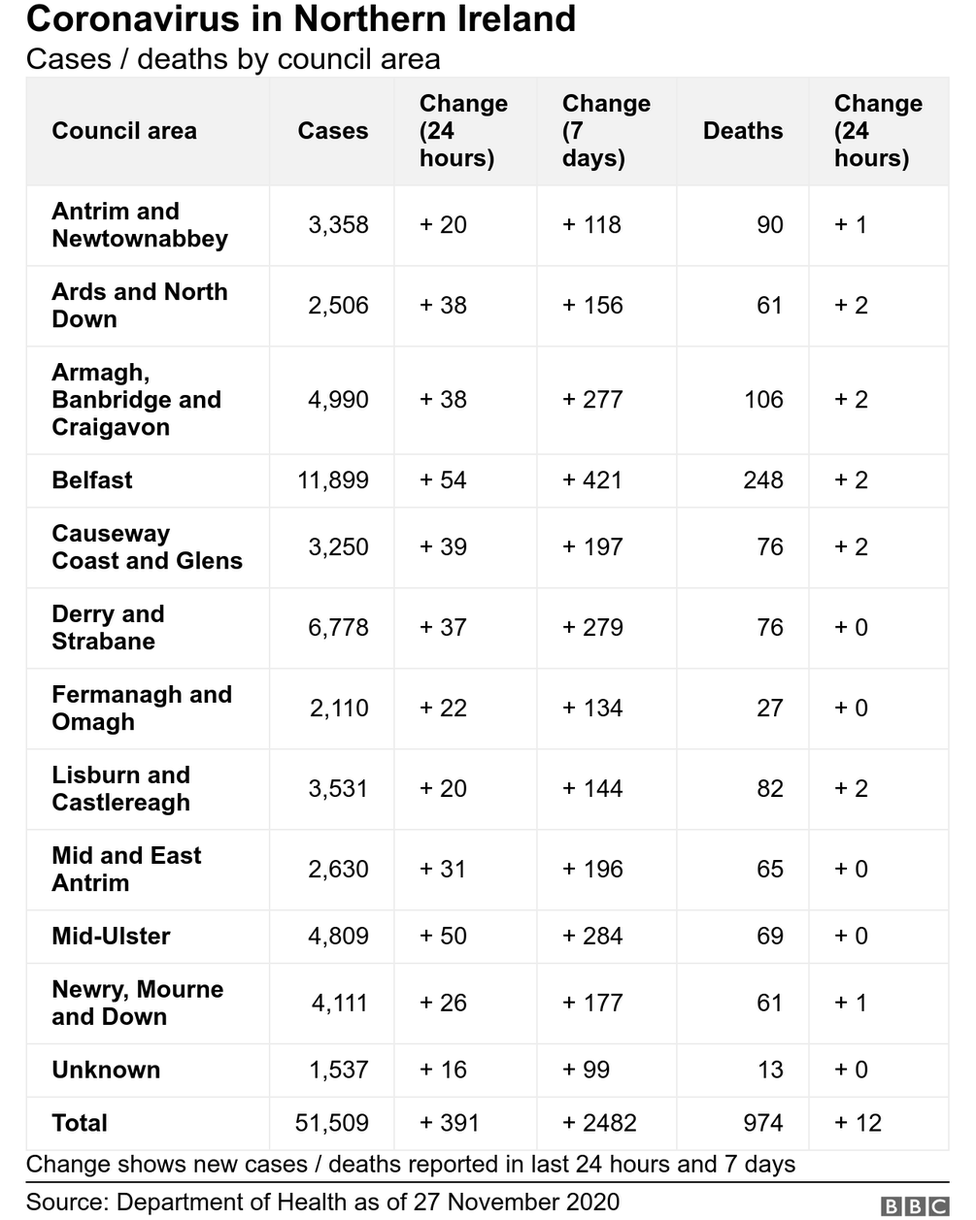
Other deaths were recorded in hospices (0.7%) and residential addresses (6.6%). Deaths in care homes and hospices involved 106 separate establishments.
People aged 75 and over account for around two-thirds of all Covid-19 related deaths (65.1%).
The provisional number of all deaths for the week ending 20th November was 396.
That is 10 fewer than the previous week and 77 more than the five-year average of 319.
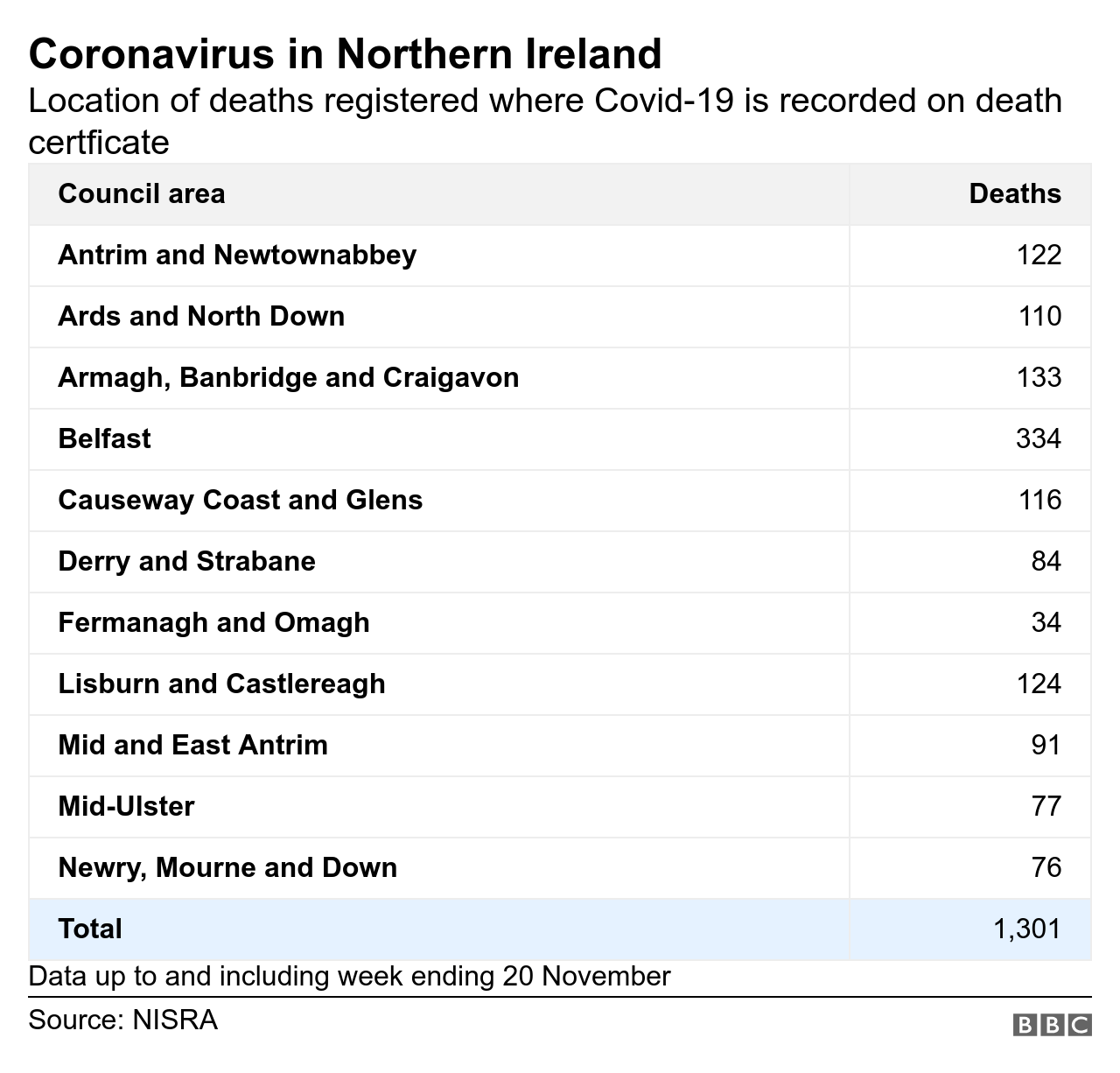
Excess deaths are those above what would normally be expected at the time of year, averaged over five years.
Nisra found 1,753 excess deaths have been registered in the past 34 weeks.
On Thursday Health Minister Robin Swann said plans are under way to allow Northern Ireland's vaccination programme to begin in December should any of the potential vaccines gain safety approval.
Mr Swann said its roll out - to be overseen by the joint committee on vaccination and immunisation (JCVI) - will be "a major logistical exercise lasting many months".
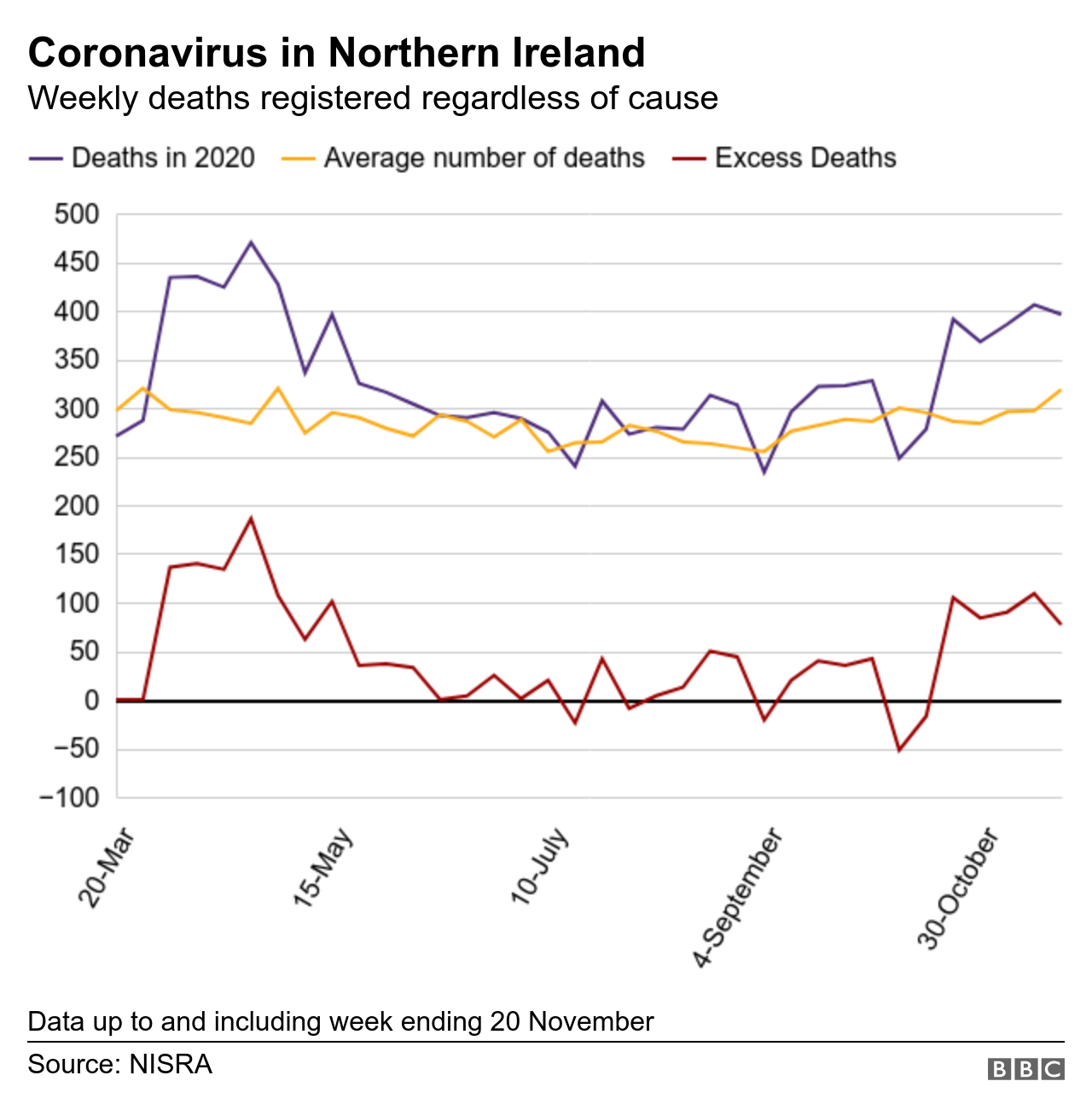
John Compton, a former chief executive of NI's Health and Social Care Board, agrees.
The vaccination programme may take longer than the public anticipates, he said.
"It is a colossal exercise - there will be many operational problems people will run into," he told BBC News NI.
Mr Compton said that the scale of the roll out will have many practical challenges.
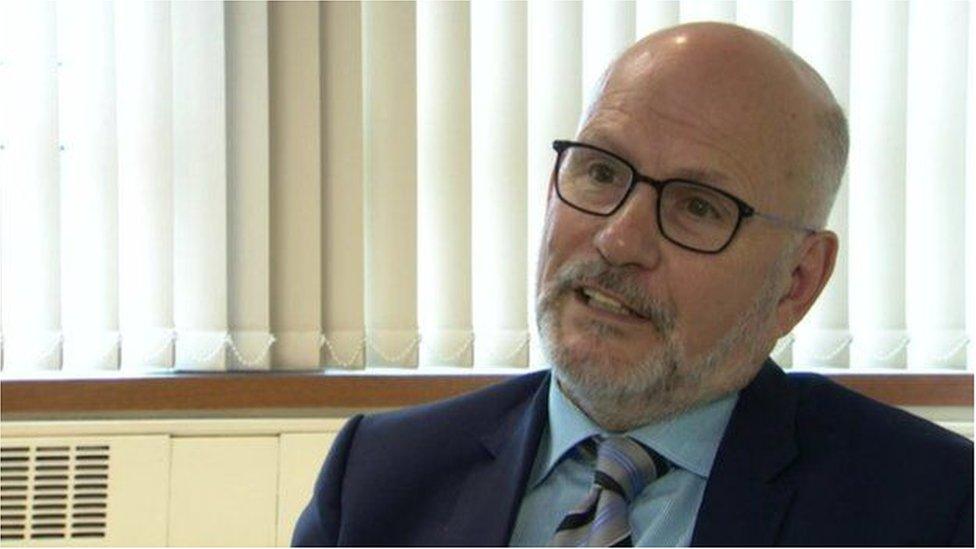
John Compton said delvering a mass vaccination programme is "a colossal exercise"
"Where is the vaccination going to be given? Will it be given in GP surgeries? You will have to get venues sorted out for it. Then you have to store vaccines, particularly if it has to be stored at -60 or -70 degrees, that is not something that is straightforward," he said.
Staffing is likely to be an issue too, he added.
Unlike a testing programme which can be undertaken by untrained staff, Mr Compton said that a vaccination programme "needs to be clinically led".
- Published20 November 2020
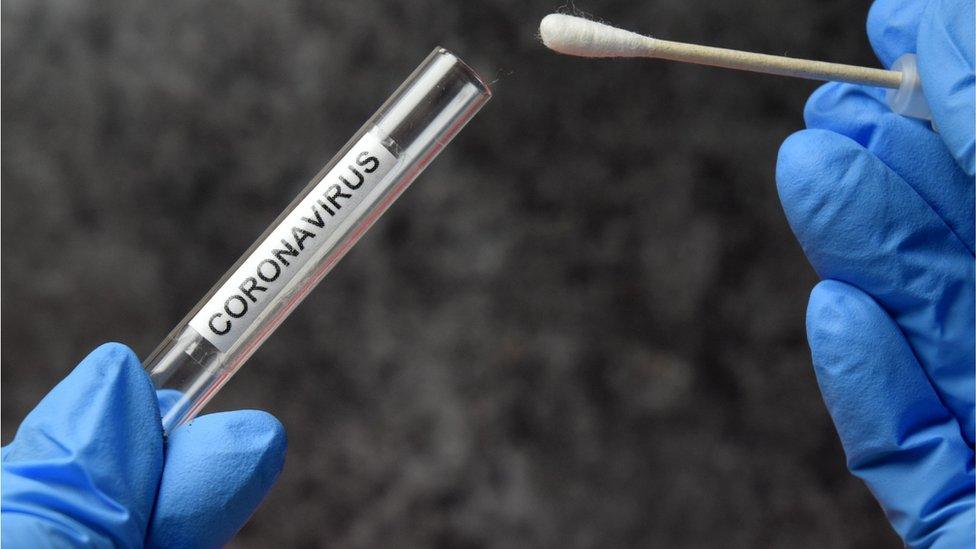
- Published20 November 2020
